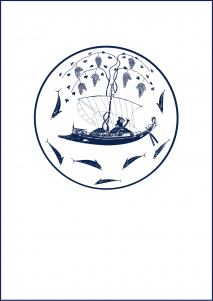Nicodemus Frischlin: Band IV: Deutsche Dichtungen und Entwürfe
Frischlins deutsche Dichtungen nehmen eine Sonderstellung in dessen Werk ein. So verfasste Frischlin die Mehrzahl seiner Texte auf Latein, der humanistischen Bildungssprache seiner Zeit; das Deutsche hingegen betrachtete er als niedere Volkssprache und empfand seine Verwendung vor allem als Zugeständnis an ein vermeintlich ungebildetes Publikum. Dazu zählte für Frischlin nicht nur das einfache Volk, sondern auch der Großteil des Adels. Es ist vor diesem Hintergrund kein Zufall, dass sich ›Fraw Wendelgard‹ (1580), Frischlins einziges zu Lebzeiten veröffentlichtes deutschsprachige Drama und zugleich eines seiner bekanntesten Werke, in dem er einen historischen Stoff aufgriff, an ein höfisches Publikum richtete. Außer der ›Wendelgard‹ schrieb Frischlin auch Entwürfe für drei Bibelkomödien (›Hochzeit zu Kana‹, ›Joseph‹, ›Ruth‹), die, auf bereits früher gefasste Pläne zurückgehend, während seiner Haft auf der Burg Hohenurach (1590) entstanden, jedoch unvollendet blieben und erst mehrere hundert Jahre später im Druck erschienen.
Frischlins letztes volkssprachliches Werk, ›Vom Leben/ Raisen/ Wanderschafften vnd zustaͤnd Des Grossen S. Christoffels‹ (1591), erschien erst nach seinem Tod und obwohl seine alleinige Urheberschaft an dem Text nicht völlig gesichert ist, wird er gemeinhin als Arbeit Frischlins angesehen. Als gereimte Satire auf die Missstände der Welt stellt ›S. Christoffel‹ dabei noch heute eine ebenso kurzweilige wie unterhaltsame Lektüre dar. Neben den poetischen Schriften im engeren Sinn enthält der Band auch die ›Kurtze Abfertigunge‹ (1589), eine gegen den Melanchthon-Anhänger Sebastian Gobler gerichtete Polemik, in der Frischlin für den mit ihm befreundeten Theologen Polykarp Leyser Partei ergriff. Im auffälligen Kontrast zu Frischlins eigener Geringschätzung seiner volkssprachlichen Produktionen waren es gerade diese, die im 19. Jahrhundert wesentlich zu seiner Wiederentdeckung beitrugen und ein neuerliches Interesse an seinem Werk begründeten.
Mit der kritischen Edition der ›deutschen Dichtungen und Entwürfe‹ im Rahmen des IV. Bandes der ›Sämtlichen Werke‹ werden diese also um einen Schriftenkomplex erweitert, der sowohl für das Verständnis von Frischlins Gesamtwerk wie auch dessen Rezeption von zentraler Bedeutung ist.
Inhalt:
- Fraw Wendelgard (1580)
- Hochzeit zu Kana (1590)
- Joseph (1590)
- Ruth (1590)
- Vom Leben/ Raisen/ Wanderschafften vnd zustaͤnd Des Grossen S. Christoffels (1591)
- Kurtze Abfertigunge (1589)
All volumes
- Band III,1: Priscianus vapulans (Der geschlagene Priscian); Iulius redivivus (Julius Caesars Rückkehr ins Erdenleben) – available
- Band III,2: Phasma – available
- Band III,3: Kommentar zu ›Priscianus vapulans‹ (Der geschlagene Priscian) und ›Iulius redivivus‹ (Julius Caesars Rückkehr ins Erdenleben) – available
- Band IV: Deutsche Dichtungen und Entwürfe – March 2025
- Band V,1: Lyrik I (1562-1572) – available
- Band V,2: Lyrik II – Second half of 2025
- Band VII: Epische Dichtungen I – in preparation
- Band VIII: Epische Dichtungen II – in preparation
- Band IX: Reden – in preparation
- Band X: Lateinische Übersetzungen aus dem Griechischen – in preparation
- Band XI: Paraphrasen – in preparation
- Band XII: Philologische Schriften I – in preparation
- Band XIII: Philologische Schriften II – in preparation
- Band XIV: Abhandlungen I – in preparation
- Band XV: Abhandlungen II – in preparation
- Band XVI: Briefe von und an Frischlin I – in preparation
- Band XVII: Briefe von und an Frischlin II – in preparation
- Band XVIII: Lebenszeugnisse und Dokumente I – in preparation
- Band XIX: Lebenszeugnisse und Dokumente II – in preparation
- Band XX: Bibliographie, Gesamtregister – in preparation
- Subject Areas
- New Publications
- ---
- Critical Editions
- Abaelardus: Dialogus
- Andreae: Gesammelte Schriften
- Arnauld / Nicole: L'Art de Penser
- Böhme: Die Urschriften
- Böhme: Gesamtausgabe
- Bolzano: Gesamtausgabe
- Droysen: Historik
- Fichte: Gesamtausgabe
- Fischart: Sämtliche Werke
- Franck: Sämtliche Werke
- Frischlin: Sämtliche Werke
- Hülser: Die Fragmente zur Dialektik der Stoiker
- Harnack: Einleitung in das neue Testament
- Hauptmann: Sämtliche Werke
- Hegel: Vorlesungen über Rechtsphilosophie 1818-1831
- Herder: Studien und Entwürfe
- Jacobi: Briefwechsel - Nachlaß - Dokumente
- Locke: Anleitung des menschlichen Verstandes
- Maimon: Gesamtausgabe
- Meier: Beyträge
- Melanchthon: Briefwechsel
- Mendelssohn: Gesammelte Schriften
- Nicolai: Sämtliche Werke – Briefe – Dokumente
- Reinhold: Korrespondenzausgabe
- Reuchlin: Briefwechsel
- Reuchlin: Sämtliche Werke
- Scaliger: Poetices libri septem
- Schelling: Historisch-kritische Ausgabe
- Schickard: Briefwechsel
- Shaftesbury (Anthony Ashley Cooper): Standard Edition
- Steiner: Schriften
- Svarez: Gesammelte Schriften
- Thomas von Aquin: De Unione
- Weigel: Sämtliche Schriften. Neue Edition
- Collected Works
- Series
- Bibliographies and Reference Books
- Allgemeine Zeitschrift für Philosophie
- AZP Beihefte
- Jahrbuch der Psychoanalyse
- JP Beihefte
- Steiner Studies
- Open-Access
- Single volumes
- eBooks
- Special Offers
- ---
- Authors
- Publishing house
- Links / Partner
- Paths to Philosophy
